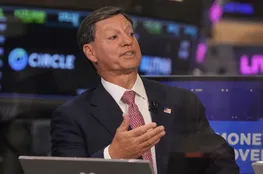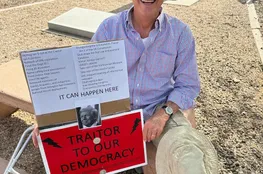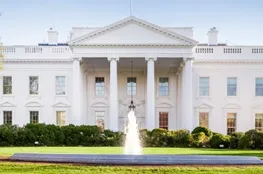The 2024 election is heating up as Nevada Senator Jacky Rosen and GOP Senate candidate Sam Brown faced off in a pivotal debate just days before early voting commenced. With the election looming on November 5, the candidates tackled a range of pressing issues, from the housing crisis to the U.S.'s relationship with Israel. This debate, organized by 8 News Now, comes as Brown, a former Army captain and Purple Heart recipient, seeks to close the polling gap with the incumbent, Rosen. Despite Rosen's consistent lead, with an Emerson College poll showing her at 50% support compared to Brown's 42%, the 5% undecided voters remain a critical factor.
One of the central topics discussed was the economy. Rosen emphasized her HOME Act, aimed at curbing price gouging, and highlighted her success in securing $500 million for Nevada's housing program. She underscored efforts to work with the FTC to monitor major corporations like Kroger and Albertsons. Conversely, Brown focused on energy policy, advocating for cheaper, efficient energy sources to reduce overall expenses, though lacking specific proposals. Both candidates expressed support for former President Donald Trump's 'no tax on tips' policy, though Rosen stressed the need for safeguards to prevent potential exploitation by employers.
In addressing the housing crisis, Rosen called for a legislative battle against price gouging and speculated releases of federal land for development. She also defended her legislative record when criticized by Brown for perceived inadequacies in her Washoe County lands bill. Brown, advocating for easier access to federal land and criticizing the current auction processes, challenged Rosen's border policy record, questioning her commitment by highlighting her limited visits. Rosen countered with the bill's broader community support and its multifaceted approach for housing and community facilities.
Turning to international policy, both candidates reaffirmed their support for Israel. Brown emphasized Israel's sovereignty in its defense decisions, cautioning against unwarranted U.S. intervention. Rosen, while reflective of this sentiment, stressed U.S. responsibility in opposing terrorism and ensuring humanitarian aid reaches those in need. She highlighted the ongoing hostage crisis, demanding more concerted efforts for their release.
The water crisis also took center stage. Rosen pushed for water-smart infrastructure investments, while Brown criticized California's water management, advocating Nevada's conservation leadership as a model. Their immigration stances revealed sharp contrasts, with Brown discussing logistical challenges in Trump's envisioned mass deportations, preferring border closings and criminal deportation. Rosen supported a comprehensive bipartisan reform, emphasizing both border security and citizenship pathways.
On the contentious issue of abortion, Brown reiterated his opposition to a national ban, aligning with Nevada's protective laws, and called for increased support for women. Rosen advocated for reinstating Roe v. Wade, challenging Brown's previous opposition to abortion rights and argued that the issue should remain a personal decision between a woman and her doctor.
The candidates clashed over the filibuster, with Brown firmly against its cessation, while Rosen proposed reforms to minimize legislative gridlock. Rosen suggested that improving filibuster regulations could facilitate more effective governance without extreme partisan manipulation.
The debate extended into sports-related issues with the recent UNR volleyball controversy over transgender athletes. Rosen underscored the importance of expertise from parents, coaches, and governing bodies, rather than politician-led decisions. Brown took a firm stance against biological males in women's sports, criticizing political hesitation in addressing the matter.
Overall, the debate between Rosen and Brown highlighted the stark differences in their approaches to pressing state and national issues, setting the stage for a tightly contested election.
























